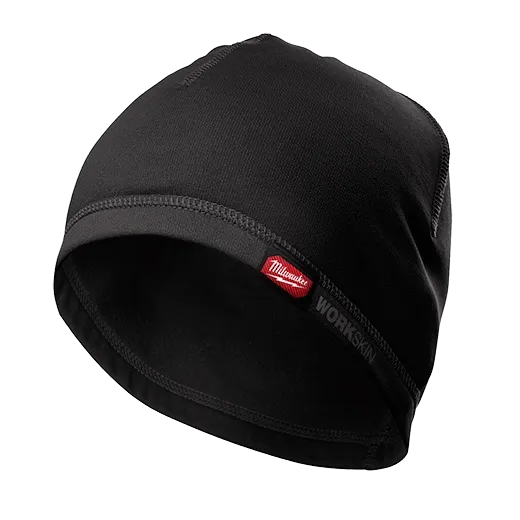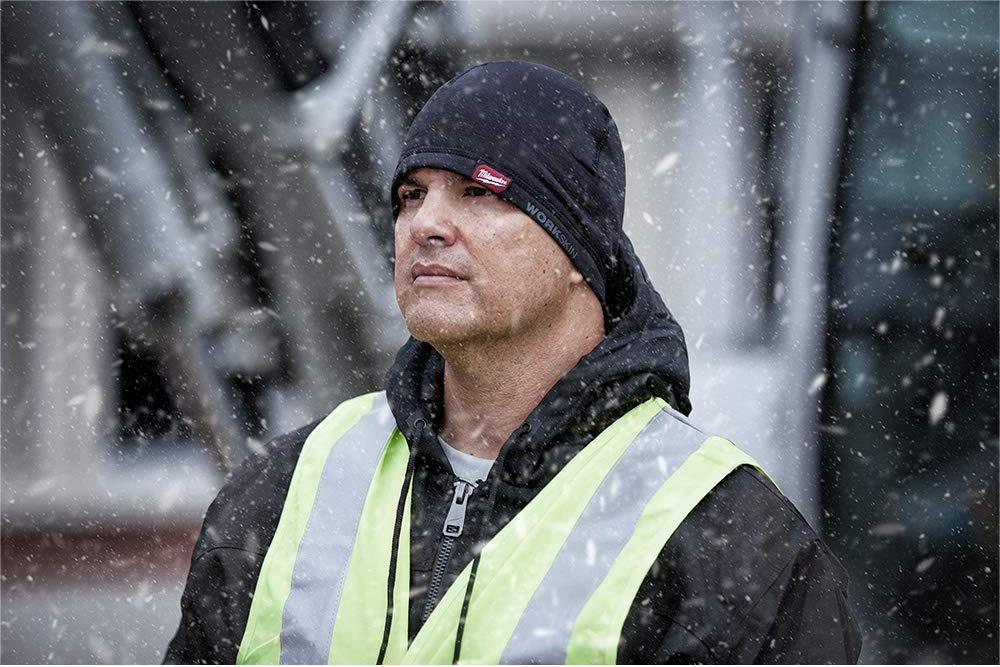When subzero temperatures threaten productivity, one innovation stands between workers and the biting cold

The Invisible Crisis of Cold Weather Work
Every winter, millions of construction workers, utility technicians, and outdoor laborers face an invisible productivity killer – the relentless assault of cold temperatures beneath their hardhats. Conventional solutions like bulky beanies compromise safety compliance, while inadequate liners leave workers alternating between sweat-drenched discomfort and dangerous chills. The Milwaukee WORKSKIN Cold Weather Hardhat Liner 422B emerges as the engineered solution to this seasonal struggle, blending advanced material science with occupational practicality.
“The moment I stopped shivering was the moment I realized how much energy I’d been wasting just staying warm,” reports Jason T., a wind turbine technician in Minnesota.
Engineering Warmth: The 422B’s Three-Layer Defense System
1. Surface Layer
Durable polyester blend fabric engineered for abrasion resistance against hardhat interiors. The textured inner surface enhances airflow while preventing the pilling that plagues inferior liners.
2. Moisture Transport Matrix
Proprietary wicking channels pull moisture away from high-sweat zones (forehead, crown) at 3x the rate of standard fleece, preventing the evaporative cooling effect that saps body heat.
3. Thermal Regulation Core
Micro-denier insulation maintains optimal thermal balance between 14°F (-10°C) and 32°F (0°C), the critical range where most cold-weather productivity loss occurs.
The Hardhat Liner Showdown: 422B vs Industry Standards
| Feature | Milwaukee 422B | Standard Fleece Liner | Thermal Beanie |
|---|---|---|---|
| Hardhat Compatibility | Optimized fit | Bulk issues | Safety hazard |
| Moisture Wicking | Advanced system | Minimal | None |
| Cost Per Wear | $0.08/day* | $0.12/day | $0.15/day |
*Based on 160-day winter season over 3-year lifespan
From Frostbite to Focus: A Lineman’s Winter Transformation
The Breaking Point
December 2022: Temperatures plunged to -15°F (-26°C) during a critical power restoration project. Veteran lineman Michael R. alternated between sweating under layers and shivering during breaks, losing 2 hours of productive work daily to cold-related delays.
The 422B Difference
By maintaining consistent thermal regulation without bulk, the Milwaukee liner allowed Michael to work continuous 90-minute stretches instead of 45-minute cycles. His crew completed the project 18 hours ahead of schedule – the equivalent of $5,400 in saved labor costs.
“I used to count the minutes until break time. Now I forget to check my watch until the job’s done.”
Key Features for Cold Weather Workers
- Optimized hardhat compatibility for safety compliance
- Advanced moisture-wicking technology prevents freezing sweat
- Odor-resistant fabric maintains freshness through multiple wears
- Durable construction withstands 200+ industrial washes
Technical Specifications
- Material: 87% Polyester, 13% Spandex blend
- Temperature Range: Effective 14°F to 32°F (-10°C to 0°C)
- Care Instructions: Machine wash cold, tumble dry low
- Compatibility: Fits most ANSI-compliant hardhats
The Unseen Advantage
In the high-stakes world of winter construction and utility work, temperature regulation isn’t about comfort – it’s about maintaining the cognitive sharpness to make split-second safety decisions and the physical endurance to complete precision tasks. The Milwaukee WORKSKIN Cold Weather Hardhat Liner 422B represents more than insulation; it’s a productivity multiplier that pays for itself within the first week of use.
For crews working in freezing temperatures, the choice isn’t between wearing a liner or going without – it’s between controlled warmth and uncontrolled heat loss. The 422B ensures workers expend energy on the job, not on staying warm.

